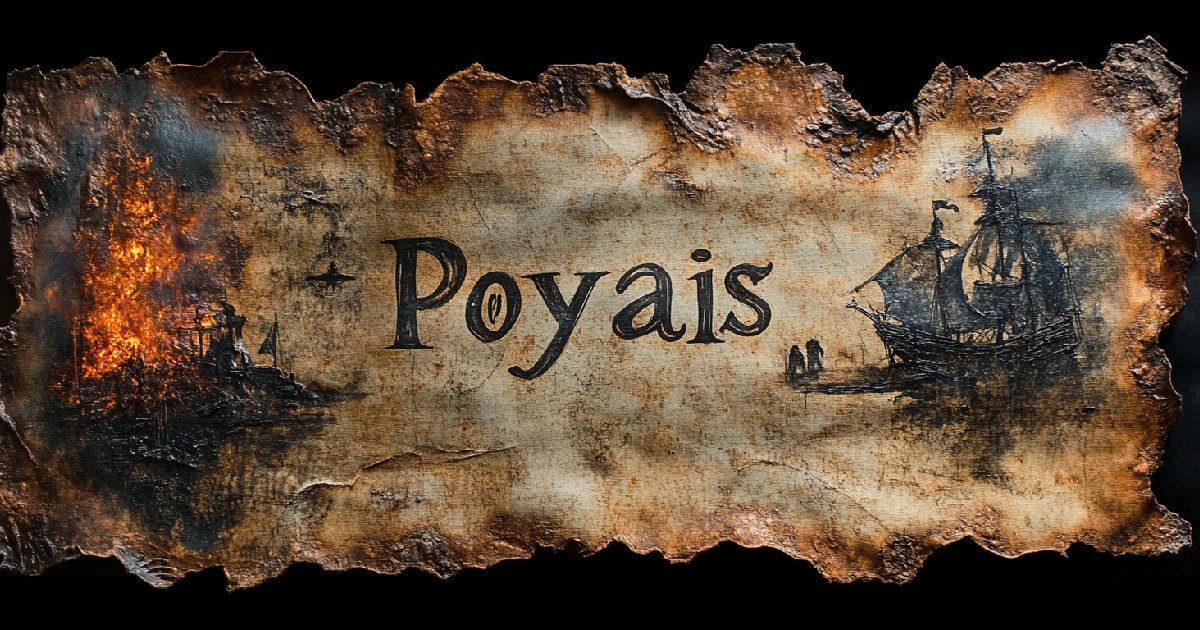

The ship Honduras Packet cut through the Caribbean waters, its decks crowded with hopeful settlers clutching their dreams of a new life in paradise. They had been promised Poyais, the jewel of the New World—a land of golden rivers, rich soil, and friendly natives eager to welcome them. Their leader, Gregor MacGregor, the self-proclaimed Prince of Poyais, had painted them a vision of boundless opportunity, a land waiting for civilization to take root.
But when the settlers finally arrived, reality hit like a cannon blast. There was no city, no thriving colony—only untamed jungle and the suffocating silence of a land that had never even heard of Gregor MacGregor. The promised paradise was a lie, and their dream had just become a waking nightmare.
And Gregor? He wasn’t there to see their faces when the truth hit. He had already taken their money and disappeared.
Born in Scotland in 1786, Gregor MacGregor wasn’t a nobody—but he wasn’t a prince, either. He came from a respectable family and joined the British army, but found himself far more interested in talking his way up the ranks than actually earning his place.
His real taste for deception came when he traveled to South America during its wars of independence, fighting alongside legendary figures like Simón Bolívar. He played the part of a heroic commander, but his greatest talent wasn’t on the battlefield—it was in storytelling.
When he returned to Britain in 1820, he didn’t come back as Gregor MacGregor, failed soldier of fortune. He came back as His Highness, Gregor MacGregor, Prince of Poyais.
And Britain? It ate up every word.
MacGregor’s con was as bold as it was brilliant. He didn’t just claim to have discovered a rich, untapped paradise in Central America—he forged an entire nation on paper.
The Scam:
For the struggling British middle class, Poyais was the promise of a fresh start via land, wealth, and opportunity. Families sold everything they owned to buy a future in MacGregor’s kingdom.
And when the first settlers arrived? They found only jungle, disease, and death.
The few survivors of the Poyais expedition made it back to Britain, their bodies weakened from starvation and malaria. The dream was dead.
But the most shocking part? MacGregor was never truly punished.
He fled to France and tried the same scam again. When that collapsed, he eventually made his way to Venezuela, where—in the ultimate irony—he was given a military pension for his past service.
He lived out the rest of his life comfortably, never truly paying for the hundreds who died chasing his fantasy.
Gregor MacGregor’s Poyais scheme was one of the most ambitious cons in history, and while it seems absurd in hindsight, its tactics are eerily familiar. A charismatic leader, promises of untold wealth, official-looking documents, and a dream too good to question.
If Poyais had been a 21st-century scam, it would’ve been a Ponzi scheme, a crypto rug-pull, or a startup promising AI-powered miracles. The formula hasn’t changed—only the tools.
In the end, MacGregor never faced true justice. He slipped away, outlived his victims, and died peacefully in Venezuela in 1845, recognized as a war hero.
But the settlers who boarded the Honduras Packet in search of paradise? They were never coming home.
Their graves lay unmarked in the jungles of Central America, the final victims of a man who sold them a dream—and left them to die in its ruins.
MacGregor wasn’t just a scammer; he was a genius of deception, a man who convinced people to risk their lives on nothing but words. His story is a reminder that the biggest lies are the ones we want to believe the most.
And if history has taught us anything?
There’s always another Gregor MacGregor waiting to sell us Poyais.